Uqora Review
Table of Contents
About Uqora
One of the most common[1] infections, Urinary Tract Infections (UTIs), affect one-third of women during their lifetime. Because of this, a prevention solution is needed just as much as a cure.
Natural supplement company Uqora has developed an answer, offering products to prevent UTIs.
This Uqora review will talk about how this company’s products can help you avoid those painful visits to the doctor. Using science-backed ingredients, this company’s products are formulated by a highly experienced team of physicians and scientists.
It is with good reason that they have a large social media following, with 30.5k Instagram followers.
If UTIs are a problem you want to prevent, then read on as we will dig deeper into each product’s ingredients, benefits, possible downsides, customer ratings, promotions, and any other details you are looking for before deciding if you should press that order button.
Overview of Uqora
Uqora was founded in 2014 by Jenna Ryan and her partner Spencer Gordon who has a background in biochemistry. The couple assembled a team of physicians, scientists, and urologists to make several products with a focus on natural prevention of UTIs.
Ryan and Gordon were inspired by their own struggles with multiple UTIs in a year and started Uqora with a mission to help millions of people who struggle with UTIs and are looking for a non-antibiotic, natural approach to preventing them.
Uqora’s headquarters are based in San Diego, CA, and all of their products are manufactured in the United States using scientifically-backed, safe ingredients.
Before I get further into this Uqora review, let’s take a look at some of the company’s main features:
Highlights:
- Scientifically-backed ingredients
- Formulated by physicians and scientists
- Free shipping within the United States
- Ship internationally
- 30-day money back guarantee
Uqora Review
We all think of drinking cranberry juice when we think of preventing UTIs, don’t we? But a recent article[2] in 2016 from the Journal of American Medical Association found that it’s time to move on from cranberries as they are not effective.
So, it’s time we use natural products that work and have shown positive results in stopping these infections from recurring.
Before I get into how Uqora products work, let’s talk a little bit about UTIs. A UTI basically means that pathogenic bacteria, mainly E. coli[3], is present in the bladder. This can then stick to the bladder wall and lead to symptoms such as frequent urination, pain while urinating, lower back and lower abdominal pain, and more.
There are many different causes of a UTI such as sex[4], post-exercise, travelling, menopause, and stress. This is because the bacteria grow in moist areas and are given a chance to travel up the urethra into your bladder.
Now, in women, this distance between the urethra and bladder is very small so it’s a lot easier[5] for these bacteria to get into our bladders and cause infections.
The common treatment for UTIs is antibiotics, which can wreak havoc on our good gut bacteria and disrupt the balance between the good and bad. Yes, we all have bad bacteria all the time! Do you see why prevention is so important?
In this Uqora review, I will be discussing three of their products:
- Uqora Target: for general health of the urinary tract
- Uqora Control: if you suffer from recurring UTIs
- Uqora Promote: this is like a vaginal probiotic to rebalance bacteria
Although the above three are their main products, there are additional products like UTI Emergency Kit, Cleansing Wipes, and Wash Balancing Vulva Cleanser.
Uqora products are sold in attractive bright orange and white boxes with Target coming in single pouches of pink lemonade flavor. Uqora Control and Promote come as capsules.
Not sure which Uqora product to buy? They have a quiz you can take on their website to make your decision easier.
Now, this Uqora review will explore the ingredients of each product and their function.
Uqora Target Review
The purpose of this product is to flush out the urinary tract. The more time we let the bacteria stay in the urethra, the more time they have to travel to our bladders.
This is where Uqora Target comes into play. It contains a sugar molecule and some vitamins and minerals as their main components.
Ingredients Label
D-mannose is the main active ingredient in this product which is basically a naturally occurring simple sugar molecule. You can find this in several fruits and vegetables, and is used for urinary health.
Other key ingredients in this product are some vitamins and nutrients you are likely familiar with. This includes calcium, citric acid, magnesium, potassium, vitamin B6, and vitamin C.
Each of these essential nutrients have their own benefits and specific roles to play to help cleanse your urinary tract. For example, vitamin C is an antioxidant which plays a role in our immune function[6].
Other inactive ingredients are: beet root extract, natural lemon flavor, and stevia leaf extract. Each of these natural sources are used to add flavor and color to the product. There is also silica, this is a common compound that Uqora uses to maintain the powder’s texture.
Nutritional Value
Each packet of Uqora Target is only 5 calories. Ingredient quantities per each packet are:
- D-Mannose: 2g
- Vitamin C: 480mg
- Vitamin B6: 25mg
- Calcium: 60mg
- Magnesium: 15mg
- Potassium: 360mg
Benefits
Uqora Target’s benefits come when you drink the beverage regularly or after times when extra support to the urinary tract is needed, such as sex, travel, or exercise. When you take it, it helps by:
- Flushing the urinary tract through the action of d-mannose and other ingredients
- Maintaining the immune system thanks to the high doses of vitamin C
- Increasing the flow of urine thanks to vitamin B6, included as a diuretic
How Does It Work
D-mannose, the main active ingredient in this product is a simple sugar present in many fruits. D-mannose, as shown in this study[7], binds to bacteria and prevents it from sticking to the bladder wall. Several studies[8] have shown that it is very effective in preventing UTIs.
What about vitamin C? A small study[9] conducted on pregnant women showed that taking 100mg of vitamin C daily prevented UTI. However, this study alone isn’t sufficient to establish a direct cause and effect relationship between the two.
Regardless, vitamin C helps our immunity and can perhaps help in preventing infections or minimizing their occurrence and duration.
Vitamin B6 is a water-soluble vitamin which is excreted in the urine with water and has a mild diuretic effect. It also increases the frequency of urinating, allowing the bacteria to be excreted instead of staying in the bladder.
Other minerals like magnesium, calcium, and potassium are added to replenish these nutrients which are excreted along with urine.
Now let’s discuss this product’s directions and dosage.
How to Take & Dosage
Basically, you mix the contents of one pouch in 8-12 oz of water and drink it as lemonade. You can take it once every three days for maintenance.
You can also consume everytime you think you are at risk of a UTI such as after sex, exercise, when you are stressed, or travellng. You can take a maximum dosage of four pouches per day.
Their website says that it is safe for children over four years of age or who are at least 45 pounds in weight. However, this Uqora review suggests you talk to your doctor before using it.
It is also safe to consume Uqora Control and Promote on the same day as Uqora Target.
In terms of cost:
- 10 packets are sold for $30
- 20 packets are sold for $55
- 30 packets are sold for $75
Uqora also has a subscribe and save option which will save you 15% on any sized order, and renews every four weeks.
Alright, this Uqora review is moving on to the next product: Uqora Control.
Uqora Control Review
Uqora Control is for you if you have had three or more incidents of UTIs and are looking to prevent their frequency. This product also contains d-mannose like its Target counterpart. The difference in this product, however, lies in the other ingredients they added.
Ingredients Label
In addition to d-mannose, which I covered above, you will find several familiar and interesting ingredients here. One dynamic duo you will want to pay attention to is curcumin and black pepper powder.
Curcumin is found in turmeric and has anti-inflammatory properties that will also help cleanse biofilm build-up. Black pepper drastcially increases curcumin’s efficacy, allowing us to absorb more of it!
Green tea extract is also used, bringing the many health benefits of green tea along with its antioxidant properties. All caffeine is removed.
Last but not least, there’s vitamin D3 which is very important for our general health, including our bladder health.
Nutritional Value
The active ingredients in Uqora Control per 2 capsules are:
- Vitamin D3: 1500 IU
- D-mannose: 600mg
- Green Tea extract: 200mg
- Turmeric root extract (95% curcumin): 200mg
- Black pepper powder: 10mg
The inactive ingredients are hypromellose, magnesium stearate, silica, and rice flour.
This product has no calories.
Benefits
The two claimed benefits of this product are:
- It cleanses biofilm in your urinary tract which is basically a collection of microorganisms that sticks to the bladder wall
- It makes the bladder wall stronger, but evidence for this is weak
Let’s discuss how each ingredient works to prevent recurrent UTIs.
How Does It Work
This product also contains d-mannose which binds to E. coli and prevents it from sticking to the bladder, where the biofilm resides. A 2021[10] study concluded that d-mannose is good for reducing the incidence of frequent UTIs. Therefore, although it may not completely prevent it, d-mannose is still beneficial.
This product also contains green tea extract which contains the antioxidant epigallocatechin gallate. There are some studies[11] that show EGCG prevents E. coli biofilms from forming. Just in case you were wondering, the caffeine in green tea is removed and there is less than 1mg of caffeine in every dose you take.
Curcumin from turmeric extract has also shown some anti-biofilm activity against E. coli. The studies[12] to prove this are in their preliminary stages but look promising.
Black pepper powder is a great partner to curcumin and increases the bioavailability[13] of curcumin by allowing more of it to be absorbed and exert its effects.
One-third[14] of our world is deficient in vitamin D due to lack of sun exposure and use of sunscreens. There also is some evidence to show an association between vitamin D deficiency and UTIs in women.
Vitamin D also plays a role in our immune function. Therefore, the presence of it in this product is definitely an added bonus.
This is how these above mentioned components work together to clean biofilm. However, their claims of making the bladder wall stronger are not directly supported. It is possible that cleaning the biofilm can have indirect effects of making the bladder wall stronger.
Suffice it to say that this Uqora review did not find any substantial evidence about these ingredients making the bladder wall stronger. Next, let’s see how this product should be consumed.
How to Take & Dosage
Take two capsules daily with water. You can take Uqora Promote and Target on the same day as well. For children over four years old, take one capsule daily. Be sure to check with your physician if you are already taking vitamin D supplements and adjust your dose accordingly.
A one month supply of Uqora Control costs $30. If you are buying two or more Uqora products, the pricing is definitely better than buying them individually.
Next, this Uqora review will discuss one final product that aims to balance your vaginal microbiome.
Uqora Promote Review
This product helps in balancing your vaginal microbiome through different strains of lactobacillus.
As discussed previously, the treatment for most UTIs is an antibiotic. The role of antibiotics is to kill bacteria. This is a good thing and a bad thing. The good thing about antibiotics is that they kill pathogenic bacteria and in the case of most UTIs, this is E. coli.
The bad thing about antibiotics is that they don’t differentiate between good and bad bacteria, getting rid of the good bacteria present in our gut and vagina. We need these good gut bacteria as they produce acids which can help restore balance in the vagina. Another downside of frequent antibiotics is the risk of developing antibiotic resistance[15].
This is where Uqora Promote comes in to repopulate your vaginal environment with the good bugs. What’s in it? Let’s discuss that next.
Ingredients Label
In this product, you will find two key Uqora ingredients. The first is chicory root fructo-oligosaccharides. This is a prebiotic, a type of fiber that feeds the good bacteria to help them make it through your gut.
The other main ingredient in Uqora Promote is a probiotic blend made of three different strains of lactobacillus. These can be found naturally in the vagina.
Nutritional Value
In each capsule, the ingredients are as follows:
- Probiotic blend (10 billion CFUs): 80mg
- Lactobacillus acidophilus
- Lactobacillus rhamnosus
- Lactobacillus reuteri
- Chicory root fructo-oligosaccharide: 50mg
Other inactive ingredients include microcrystalline cellulose, hypromellose (vegan capsule), magnesium stearate, and silica. It contains negligible calories.
Benefits
The benefits of this product lie in restoring the good bacteria in the vagina, which should restore vaginal health. These lactobacilli strains have shown[16] some benefits in preventing recurrent UTIs.
How Does It Work
As previously explained, these bacteria prevent UTIs by producing beneficial acids to restore the balance.
The product also contains prebiotics in the form of FOS from chicory root, which is highly beneficial as this study[17] shows. These are soluble fibers that serve as food for the bacteria to thrive all the way down to the vagina.
Basically, prebiotics are food for bacteria to thrive, like fiber, and probiotics are live strains of good bacteria.
Lastly, let’s talk about the dosage instructions for this product.
How to Take & Dosage
Take one capsule daily with water. This product is only for women and is taken orally. This product is not going to help improve your digestive symptoms.
A one month supply of a 60-capsule bottle is $30. You can of course also subscribe and save 15%.
Who Is Uqora For?
Basically, Uqora products are good for all adults and children looking to maintain their urinary tract health or prevent UTIs.
Depending on the situation, whether you are looking for maintenance, preventing frequent occurrences, or restoring balance, you can pick one, two or all three products to use.
This Uqora review would like to advise you to please consult your doctor before starting to use this product. Also, if you are pregnant, lactating, or have an existing medical condition such as diabetes, please talk to your doctor.
Uqora Side Effects
Although all ingredients in Uqora products are generally well-tolerated, there are some side-effects that you should be aware of.
D-mannose can have the potential side-effect of diarrhea[18], but this may be very rare. Although d-mannose doesn’t generally affect blood sugar levels, it is advisable to consult your doctor prior to starting this product.
The potential side-effects of taking probiotics could be gas, bloating, constipation initially for the first few weeks which eventually should subside, as shown here[19].
Curcumin in turmeric can have blood-thinning effects[20], which is why it is important to be careful while taking this product, especially if you are on blood thinners like warfarin or taking other supplements like omega-3.
I’m finally at the point where this Uqora review will highlight some customer feedback. This can certainly help you finalize your decision to buy these products!
Uqora Reviews: What Do Customers Think?
The first place to look for reviews is Uqora’s official website. In total, there are 15,400 reviews of Uqora on their website, averaging 4.7/5 stars.
One customer wrote: “I have been on antibiotics for the last 4 1/2 months with a UTI that I couldn’t eradicate. I bought my first round of product from Uquora and kept taking the low dose bactrim my urologist had prescribed for about three weeks, and then I decided to stop the antibiotics to see if I could do without them.”
They continued: “It was a little iffy at first, but after a few days, I started to feel an improvement. For the first time in quite a while, I’m not taking antibiotics and so far, I’m doing well! I will definitely keep taking the Uquora regimen. Staying on antibiotics is not the answer. Thank you, Uquora for giving me a ray of hope!”
Another happy customer wrote: “I am so excited that I finally found something that actually works. Uqora is amazing! I used to get UTI’s almost every 2 to 3 months. I have gone 4 months without a UTI now. I can actually feel a difference. When I have too much wine or coffee, I simply take the lemonade flavored Target and I am confident that I will have no problem.”
Finally, a third Uqora reviewer happily shared: “Uqora seems to be working well for me. I’ve been using it for a few months. I have had nearly constant UTI infections for the last five years and since using Uqora I have had none. I was a bit skeptical of their claims but it definitely works for me!”
While I couldn’t find many negative reviews, some customers mentioned that some products are slightly expensive for their budget or found that it doesn’t work for them. However, everyone’s body reacts differently, so results always may vary with health products.
Okay, this Uqora review will now answer the million-dollar question which is whether the product is worth trying.
Is Uqora Worth It?
As mentioned throughout this review, there is substantial scientific evidence on the effectiveness of Uqora’s products. Combining this with the positive feedback on their website and a large social media following, there is a lot of good evidence that this product works for preventing UTIs.
After reading this Uqora review, if you are still on the fence, then I recommend you take advantage of their 30 day money-back guarantee and see if this product works for you. Even if it saves you one round of antibiotics, I believe it’s worth it.
Uqora Promotions & Discounts
While this review couldn’t currently find an Uqora discount code, you can take advantage of their subscription service. This will save you 15% on their products if you choose to have it delivered every four weeks.
They also have a student discount program for which you can email them and get more details.
Where to Buy Uqora
You can only buy Uqora products on their official website.
FAQ
Is Uqora vegan?
Uqora Target and Promote are vegan. However, Uqora Control is not vegan since the vitamin D3 in it is sourced from sheep’s wool.
Is Uqora gluten-free?
Yes. All three products covered in this review are gluten-free.
What is Uqora’s Shipping Policy?
Uqora has free shipping for all its products within the United States. For international orders, there is a flat fee of $8. Custom fees may be applicable depending on where you live.
For the United States, all orders are processed within 12-24 hours. Shipping then takes about 3-5 business days. You will get an email about tracking information once the order has shipped. For international orders, it can take anywhere from 2-4 weeks for your orders to arrive.
What is Uqora’s Return Policy?
There is a 30 day money-back guarantee if you are not happy with your order. You can contact customer support and they will process your refund once they receive the product.
How to Contact Uqora
There are several ways you can contact Uqora if you have any unanswered questions not covered here. You can:
- Reach them by email at [email protected]
- Leave them a message by filling out their contact form
For more brands that focus on feminine health, check out these brands:
Article Sources
- Valiquette L. Urinary tract infections in women The Canadian Journal of Urology. 2001 Jun;8 Suppl 1:6-12.
- Nicolle LE. Cranberry for Prevention of Urinary Tract Infection? Time to Move On. JAMA. 2016;316(18):1873–1874
- Ben J. Barnett, David S Stephens. Urinary Tract Infection: An Overview The American Journal of the Medical Sciences. 1997. 314 (4): 245-249
- Gal Finer, Daniel Landau. Pathogenesis of urinary tract infections with normal female anatomy The Lancet Infectious Diseases. 2004; 4 (10): 631-635.ISSN 1473-3099
- Thomas M. Hooton. Pathogenesis of urinary tract infections: an update Journal of Antimicrobial Chemotherapy, 2000; 46 (1): 1–7
- Ströhle A, Hahn A Vitamin C and immune function Medizinische Monatsschrift fur Pharmazeuten. 2009 Feb;32(2):49-54
- Domenici L, Monti M, Bracchi C, Giorgini M, Colagiovanni V, Muzii L, Benedetti Panici P. D-mannose: a promising support for acute urinary tract infections in women. A pilot study A pilot study. Eur Rev Med Pharmacol Sci. 2016 Jul;20(13):2920-5
- Kranjčec B, Papeš D, Altarac S D-mannose powder for prophylaxis of recurrent urinary tract infections in women: a randomized clinical trial World J Urol. 2014 Feb;32(1):79-84
- Ochoa-Brust GJ, Fernández AR, Villanueva-Ruiz GJ, Velasco R, Trujillo-Hernández B, Vásquez C. Daily intake of 100 mg ascorbic acid as urinary tract infection prophylactic agent during pregnancy Acta Obstet Gynecol Scand. 2007;86(7):783-7
- Rena Kyriakides, Patrick Jones, Bhaskar K. Somani. Role of D-Mannose in the Prevention of Recurrent Urinary Tract Infections: Evidence from a Systematic Review of the Literature European Urology Focus. 2021; 7 (5): 1166-1169
- Serra, D.O., Mika, F., Richter, A.M. and Hengge, R. The green tea polyphenol EGCG inhibits E . coli biofilm formation by impairing amyloid curli fibre assembly and downregulating the biofilm regulator CsgD via the σE-dependent sRNA RybB E. coli biofilm formation by impairing amyloid curli fibre assembly and downregulating the biofilm regulator CsgD via the σE-dependent sRNA RybB. Molecular Microbiology, 101: 136-151
- Maya Moshe , Jonathan Lellouche, Ehud Banin. Curcumin: a natural antibiofilm agent Science and Technology Against Microbial Pathogens. July 2011, 89-93
- Hewlings SJ, Kalman DS. Curcumin: A Review of Its Effects on Human Health Foods. 2017; 6(10):92
- Shahnaz Burhan Ali, Dedan Perdawood, RabarMohsin Abdulrahman, Dunia A. Al Farraj, Noorah A. Alkubaisi. Vitamin D deficiency as a risk factor for urinary tract infection in women at reproductive age Saudi Journal of Biological Sciences 2020: 27( 11): 2942-2947
- Hasan, T. H., & Al-Harmoosh, R. A. Mechanisms of Antibiotics Resistance in Bacteria Sys Rev Pharm, 2020; 11(6), 817-823
- Akgül T, Karakan T. The role of probiotics in women with recurrent urinary tract infections Turk J Urol. 2018 Sep;44(5):377-383
- Sharma S, Agarwal N, Verma P. Miraculous Health Benefits of Probiotics IJPSR. 2012; 3(16): 1544-1553
- Lenger SM, Bradley MS, Thomas DA, Bertolet MH, Lowder JL, Sutcliffe S. D-mannose vs other agents for recurrent urinary tract infection prevention in adult women: a systematic review and meta-analysis Am J Obstet Gynecol. 2020 Aug;223(2):265.e1-265.e13
- Williams NT Probiotics Am J Health Syst Pharm. 2010 Mar 15;67(6):449-58
- Kim DC, Ku SK, Bae JS. Anticoagulant activities of curcumin and its derivative BMB Rep. 2012 Apr;45(4): 221-6

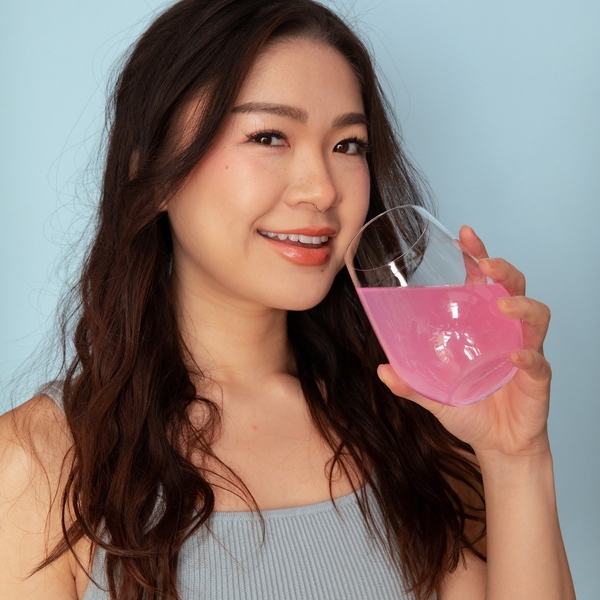


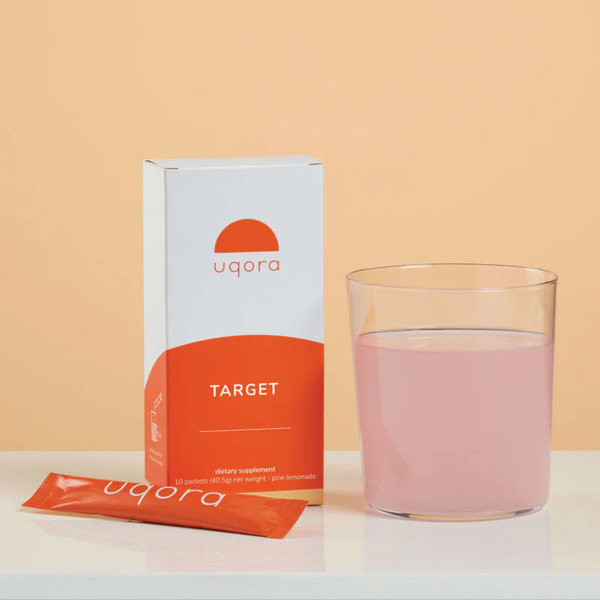
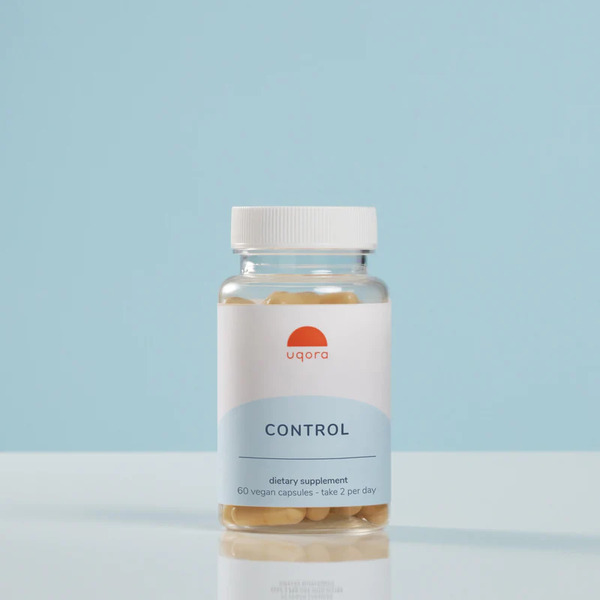
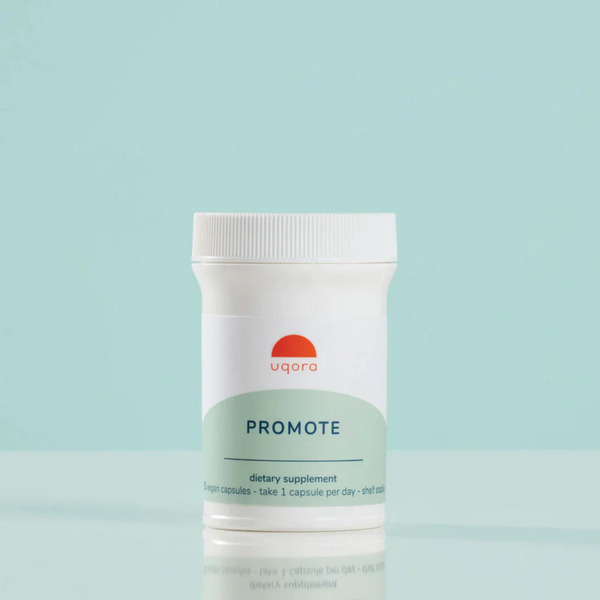
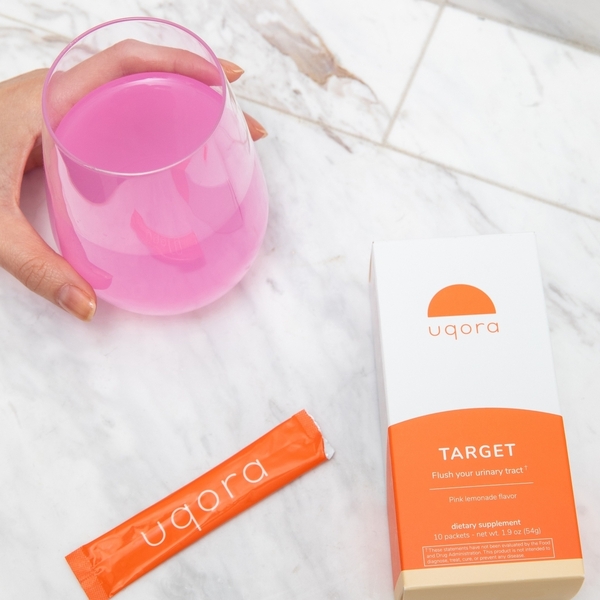
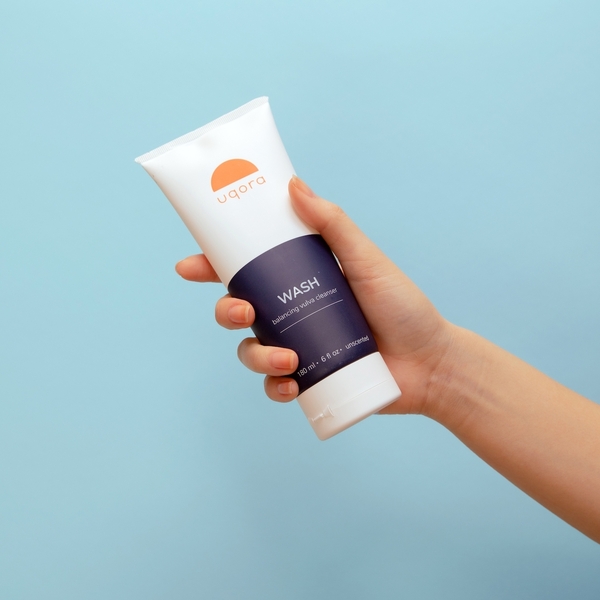
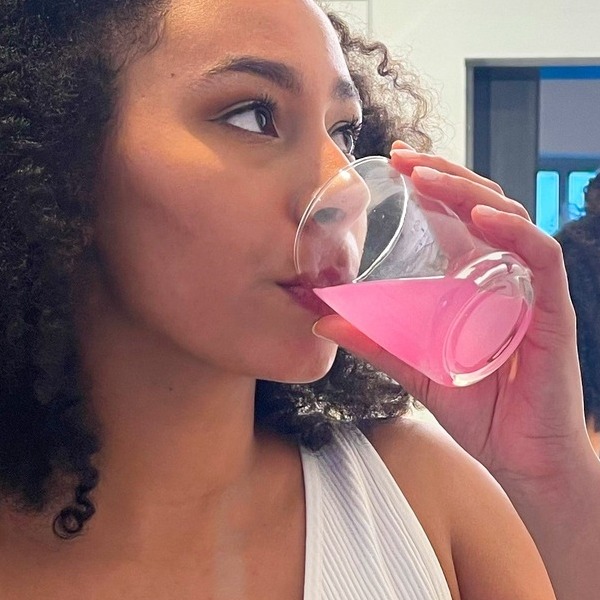
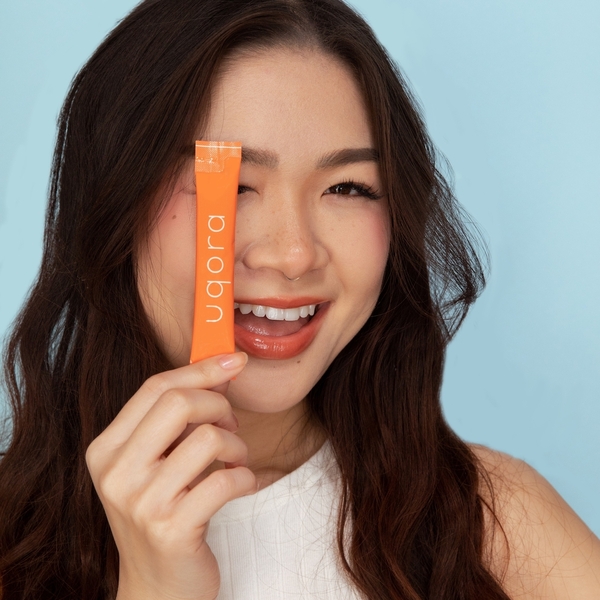
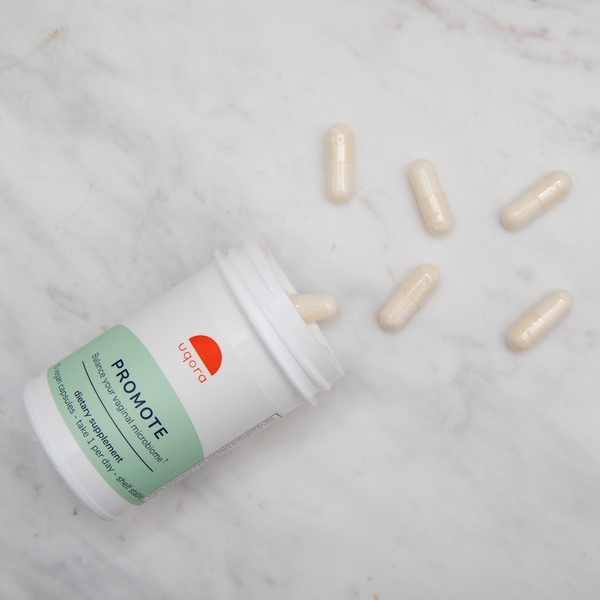
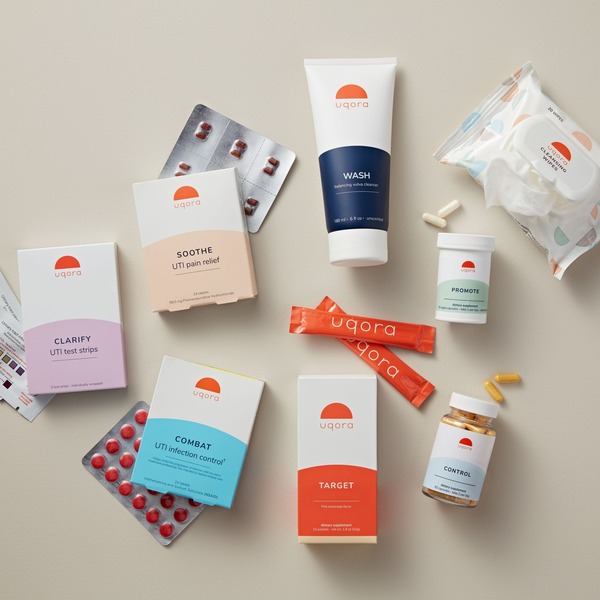

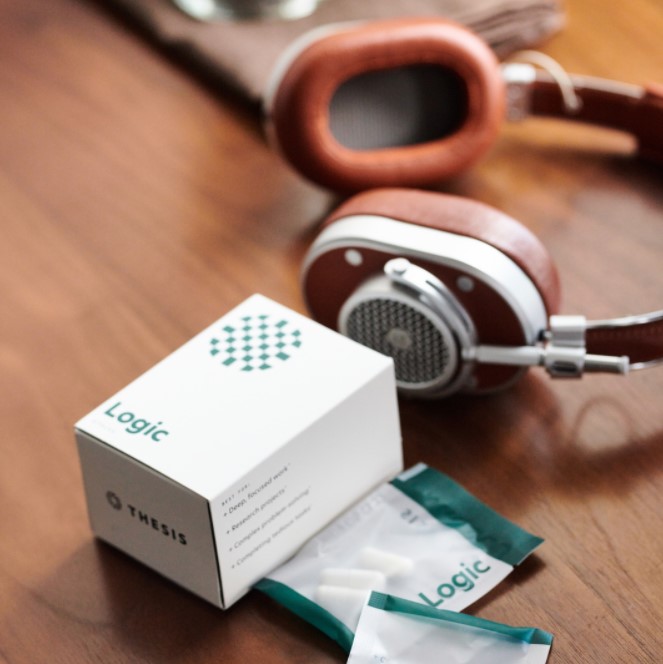



Ask the community or leave a comment
WRITE A REVIEWCustomer Reviews
Leave a review